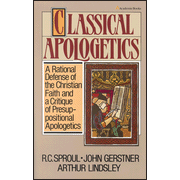Fuller and the Atonement (Part 1): “It is Enough that Jesus Died”
by Tom Nettles
Editorial note: This is the fourth post in a series on Andrew Fuller’s theology. Here is the series so far: Fuller the Non-Calvinist? (Part 1), Fullerite: Doctrine of Inability (Part 2), Fuller and Irresistible Grace (Part 3), Fuller and the Atonement – 1/4 (Part 4), Fuller and the Atonement – 2/4 (Part 5), Fuller and the Atonement – 3/4 (Part 6), and Fuller and the Atonement 4/4 (Part 7).
Fuller“The Son of God appeared—took our nature, obeyed the law, and endured the curse, and hereby made full and proper atonement for the sins of his own elect.” So confessed Fuller in 1783 at his installment as pastor at Kettering. In Fuller’s discussion of the atonement in 1785 in the first edition of The Gospel Worthy, subheaded as “Concerning Particular Redemption,” Fuller pointed to an objection based on the supposed absurdity that “God can have made it the duty of any man to believe in Christ for the salvation of his soul, or that he can have promised salvation to him on his so believing, when all the while his salvation was not the end for which he died.”i The Table of Contents described his argument in these words: “If faith were a believing Chirst [sic] died for me in particular, this objection would be unanswerable.” The second statement of the summary asserted, “No necessity for the party knowing his particular interest in Christ’s death in order to believe in him, or for his having any such interest to render it his duty.” Fuller’s basic argument in the first edition is that, at the time….
Read the entire article here.












Recent Comments